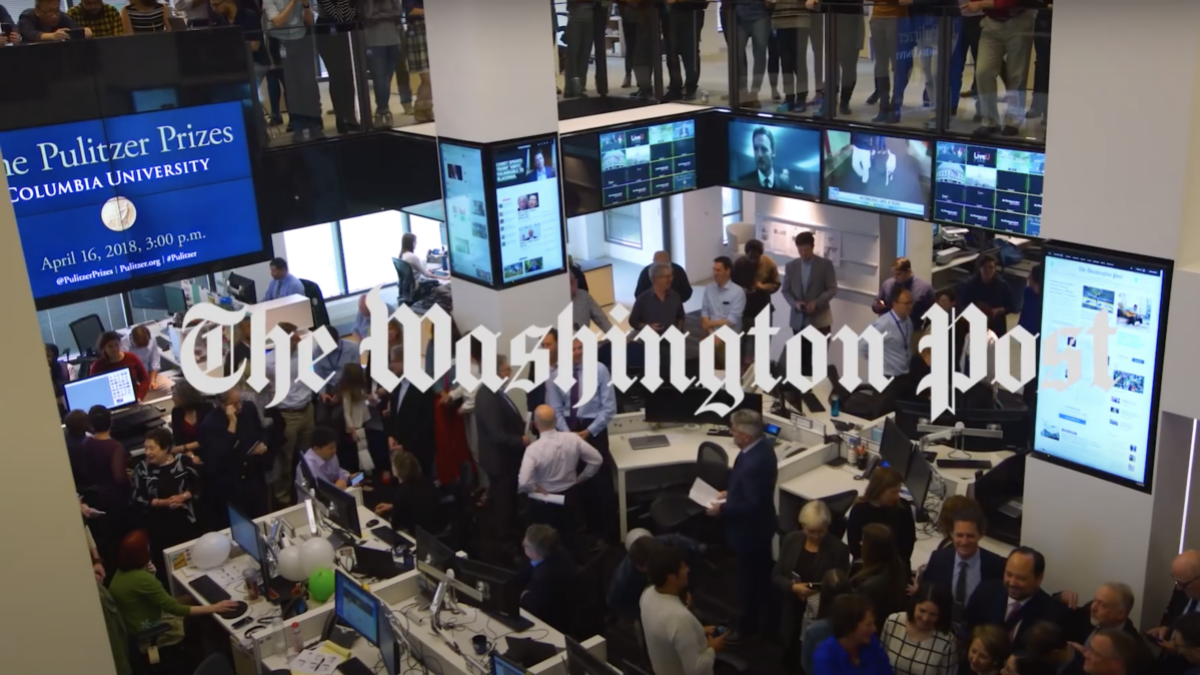
Despite previously claiming it “has a standing process for reviewing questions about past awards, under the guidelines of which complaints are considered by an appointed committee,” the Pulitzer Prize Board won’t say if it is still reviewing the awards it granted to corporate media outlets guilty of promoting the Russia collusion hoax.
In his most recent letter, former President Donald Trump threatened to sue the board unless it discloses whether it plans to rescind the awards given to “blatantly fake, derogatory, and defamatory news.”
“You have an obligation to share with me the status of that supposedly ‘appointed committee’s’ review following its alleged ‘standing process,’” Trump wrote on May 27.
Trump also said the board worked with “the publications that have obsessively promulgated disgustingly false attacks against me” and “done all you can to destroy my reputation.”
“[H]ow can I get my reputation back?” Trump asked.
Both The New York Times and The Washington Post received the 2018 Pulitzer Prize for National Reporting for amplifying claims that Trump colluded with Russia to interfere in the 2016 election. Despite years of evidence proving that Hillary Clinton’s campaign paid for and peddled the narrative in an attempt to sic the government on her political enemy Trump, the Pulitzer Prize Board has yet to rescind any of its prizes for reporting that was based on the debunked Steele dossier.
As a matter of fact, the Pulitzer webpage still legitimizes the false reporting implicating Trump in a conspiracy to undermine the integrity of U.S. elections.
“For deeply sourced, relentlessly reported coverage in the public interest that dramatically furthered the nation’s understanding of Russian interference in the 2016 presidential election and its connections to the Trump campaign, the President-elect’s transition team and his eventual administration,” says the page for the winning work.
The Pulitzer Board did not immediately respond to The Federalist’s request for comment.
Trump previously sent letters in October and November demanding that the board retract its awards for both The New York Times and The Washington Post, citing plenty of proof that the corporate media outlets’ claims of collusion were baseless then and are outrageous now.
For one, Igor Danchenko, one of the prime Steele dossier contributors, was charged with lying to the FBI about working with Clinton’s campaign. Clinton’s lawyer Michael Sussmann was also charged and later acquitted of similar crimes, but his trial uncovered definitive proof that Clinton “‘agreed with the decision’ to feed the unverified — and quickly debunked — theory that Trump was communicating secretly with Russia through a back-door Alfa Bank channel.”
The Washington Post deleted portions of two of its collusion hoax articles, slapped them with corrections, and completely changed the headlines to reflect the truth. The publication said it “could no longer stand by the accuracy of those elements of the story.”









